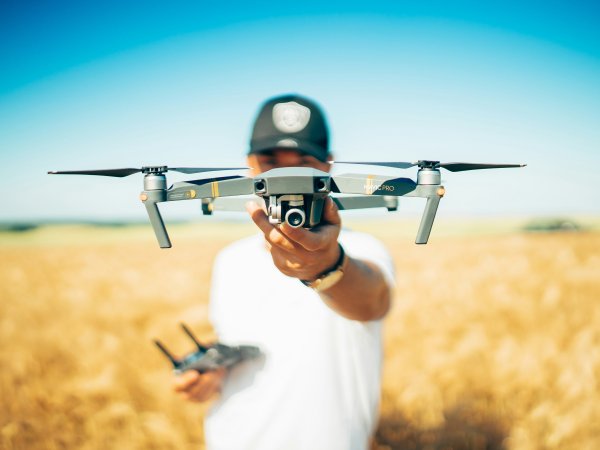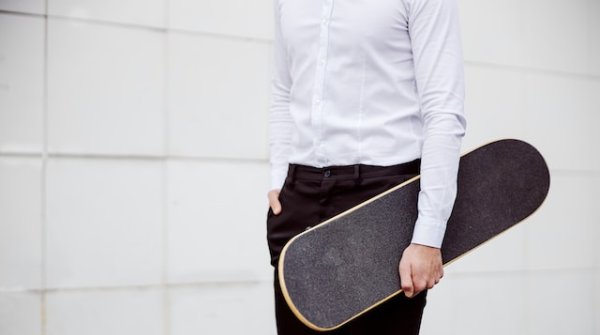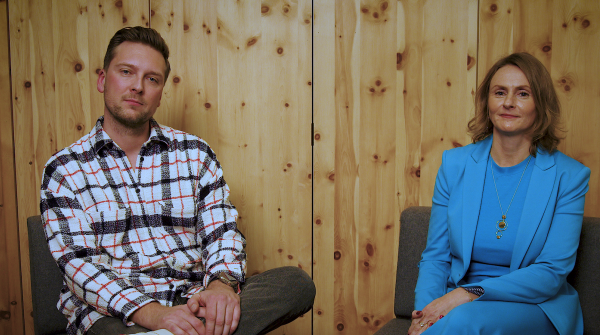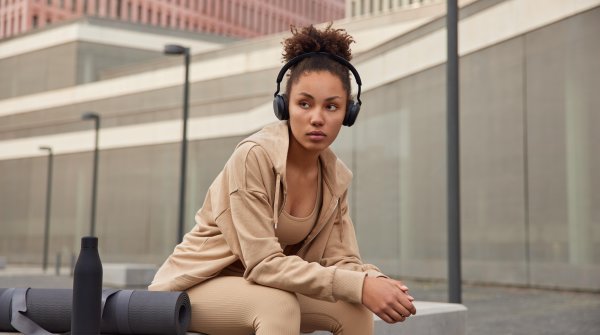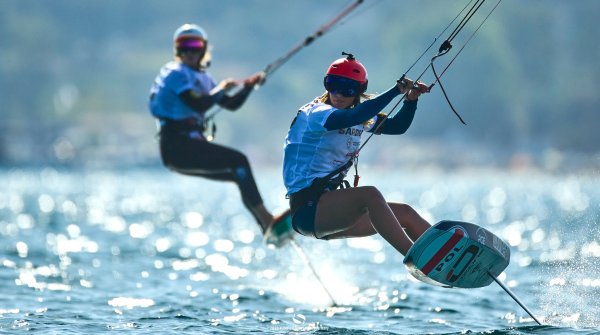Tierra del Fuego, Patagonia, Chile. Far away from civilization. Snow giants that have never worn another dress. Rotor blades of a helicopter slide in slow motion in front of the bright winter sun. At a height of three thousand meters, the side door of the helicopter opens and a snowboarder throws himself into a frenzy from a suspended position. He plunges down almost vertically, leaps over rock giants, flies dozens of meters low, glides through a pristine snow paradise and finds his fulfillment. It's professional snowboarder Travis Rice, in what is probably one of the most spectacular outdoor documentaries of all time.
For "The Art of Flight" from 2011, Travis and director Curt Morgan traveled to the most remote peaks in the world. The filming took two years with professional cine and action cameras, which not only provided outstanding images, but also a production budget of several million dollars. Behind the project is Red Bull Media House, an offshoot of the Austrian-Thai soda producer. With 14.6 million subscribers and around 4.95 billion video views, Red Bull is the most successful YouTube channel in Austria. The official trailer for "The Art of Flight" alone has been viewed 18.6 million times. Nowadays, hardly any surfing, snowboarding, cliff diving or motocross event is conceivable without bull branding. With its marketing and content strategy, the company from Fuschl am See has managed to occupy the action sports sector like no other company.
Outdoor content is no longer just something for established video producers or big budgets. Where specialists and expensive cameras were used in the past, many things have become easier today. High-quality content can be produced, distributed and consumed using just a smartphone. Simple and affordable. Small drones fit in your pocket and make it possible to take pictures that would have required helicopters a few years ago. Action cams and POV cameras are available for just a few hundred euros. And post-production has also become child's play. Thanks to AI and cloud-based editing programs, the content produced can be shared extremely quickly using a smartphone - from hand to mouth. Social media has greatly accelerated this process. For the established manufacturers of camcorders and digital cameras, this development is difficult to cope with. Since 2010, sales figures have fallen from 121.46 million a year to 7.72 million last year. However, there are still rays of hope when looking through the viewfinder. At least mirrorless system cameras are still enjoying increasing popularity. In Germany, this market segment recently saw eight percent growth. These "all-rounders" are packed with professional technology, are more compact and lighter than classic digital SLR cameras and therefore offer filmmakers more flexibility and application options. And what possibilities!
Dutchman Martjin Doolaard has shown that a bicycle globetrotter and one-man show can create something outstanding with relatively simple technical means. Equipped with a system camera, three lenses and a compact camera drone, Doorlaand has produced "Two years on a bike", a four-part YouTube documentary with an accompanying 400-page illustrated book. The videographer spent two years on the road, covering almost 20,000 kilometers from Vancouver to Patagonia. More outdoor adventure is hardly possible. The result is moments for eternity and for the big screen.
Stories and films like those of the traveling Dutchman are exactly what Joachim "Helli" Hellinger is looking for - and he always finds them. Hellinger is a film producer and founded the European Outdoor Film Tour (EOFT ) in 2001. Every year, the EOFT attracts around 250,000 spectators in over 350 cities and 14 countries. And the community continues to grow - also thanks to other film tours from Movin Adventures Medien. Various adventure and outdoor short films from all over the world are shown. Joachim Hellinger is proud of the success and knows one reason for it: "The more virtual our world becomes, the greater the longing for true stories and heroes, for authenticity and adventure." At the same time, there are more and more filmmakers who are embracing the genre and documenting themselves - precisely because investments are dwindling. Instagram and YouTube are full of outdoor enthusiasts who not only put themselves in the spotlight, but are also of great importance to brands in some cases. When caravanning, bikepacking or mountaineering, the latest products are exposed to extreme elements. In this way, outdoor brands increase their trustworthiness and influencers increase their reach.
Outdoor emotions on the big screen
Come to OutDoor by ISPO from 3-5 June 2024 and experience the adventures of fellow outdoor enthusiasts in large format! The new OutDoor by ISPO Cinema powered by EOFT will show you the most daring stunts and captivating stories from past European Outdoor Film Tour (EOFT) seasons. An additional highlight will be the presentation of the 21st Century Adventurer Award to this year's winner. We've already got the popcorn ready!
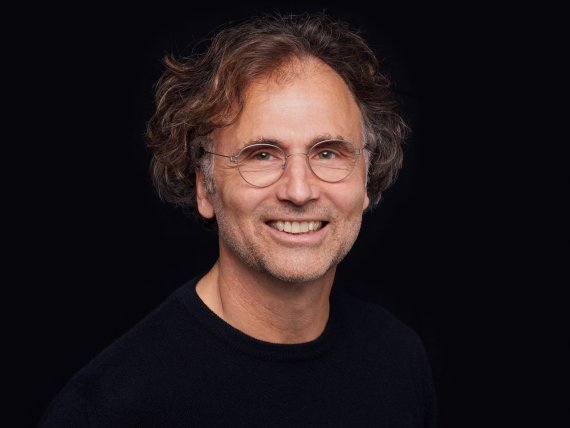
Alina Jäger, Germany's most successful bike influencer, is one of them. On her Instagram channel @clippendinandfree she inspires around 243,000 people with her outdoor trips around the globe. Less well-known brands can benefit from her reach and establish themselves. But not everyone manages the balancing act between quality and nonsense as well as Alina. The rising tide of content also brings disadvantages. "The more content is produced, the more often there is content that is irrelevant," says Joachim Hellinger. On the other hand, there is a competition for originality, superlatives and extremes. "Going it alone, introspection and the world of thought are becoming increasingly important," says Hellinger. "Free Solo" was one such extreme solo attempt that set new standards. Free climber Alex Honnold conquers the almost 1,000-metre-high granite rock El Capitan in Yosemite National Park without a rope or any other technical aids. Honnold knows that he is only one misstep away from death. He never dared to dream that Free Solo would win the Oscar for best documentary film in 2019.
But it's not just extreme borderline experiences that lead to great success. The outdoor brand Patagonia has developed its very own content strategy. Patagonia wants to shake things up and is increasingly addressing socio-political issues. In its latest work, "Laxaþjóð - A Salmon Nation", Patagonia calls on the Icelandic government to take a leading role in Europe and ban salmon farming in open net pens in its coastal waters. This is also a personal concern of company founder Yvon Chouinard. Even if the Icelandic government is not impressed by this, Patagonia's YouTube channel, which currently has 453,000 subscribers, is benefiting, as is the brand's sustainable image.
As the world becomes more complicated and uncertain, our own cosmos becomes overwhelming and resistance increases, the search for happiness outside, in freedom, becomes ever more relevant. But does it have to become more extreme in the end? Rather unlikely. Today, film productions take place in the furthest corner of the world, in the darkest night, in the deepest water or at the highest altitude. In the end, it all comes down to creative ideas, moving stories and the special people who tell them - especially if you want to prevail against the tempting short videos from TikTok. "It doesn't matter whether a movie is produced with the latest technology or the biggest budget. In the end, it's about a good story and authentic emotions that make us empathize. The limits today lie in the content and you have to go a long way to achieve this," Hellinger knows. The industry can get inspiration at OutDoor by ISPO. The trade show is the perfect meeting place for brands, outdoor enthusiasts and content producers to develop creative storytelling ideas.
- Awards
- Mountain sports
- Bike
- Fitness
- Health
- ISPO Munich
- Running
- Brands
- Sustainability
- Olympia
- OutDoor
- Promotion
- Sports Business
- Textrends
- Triathlon
- Water sports
- Winter sports
- eSports
- SportsTech
- OutDoor by ISPO
- Heroes
- Transformation
- Sport Fashion
- Urban Culture
- Challenges of a CEO
- Trade fairs
- Sports
- Find the Balance
- Product reviews
- Newsletter Exclusive Area
- Magazine
